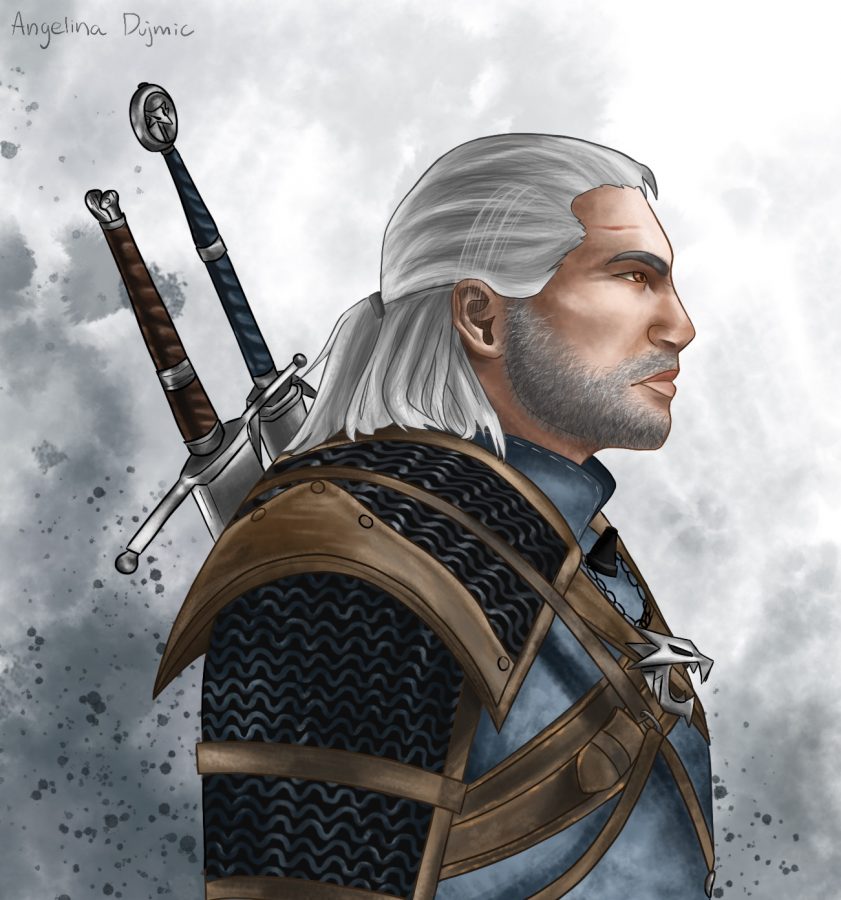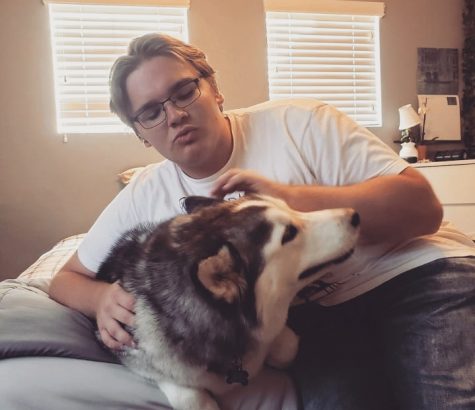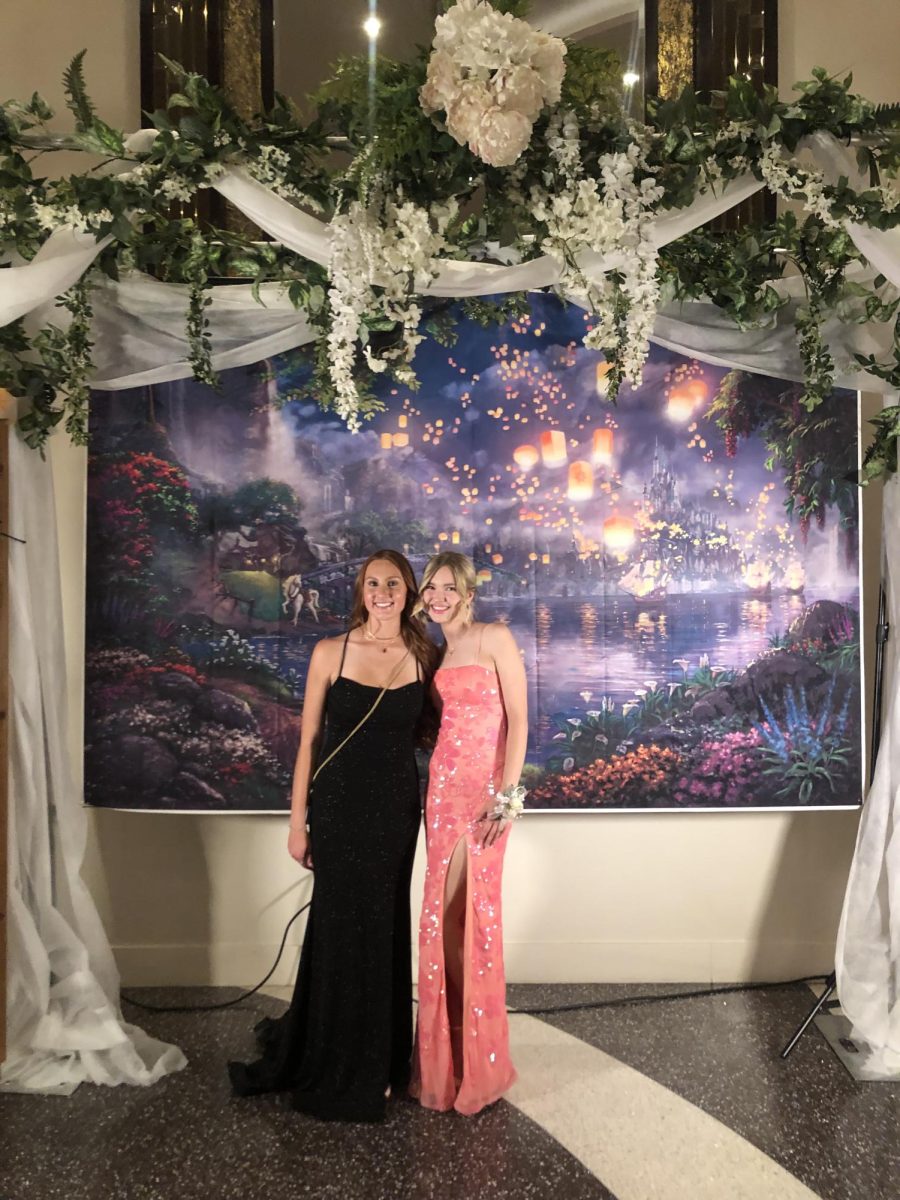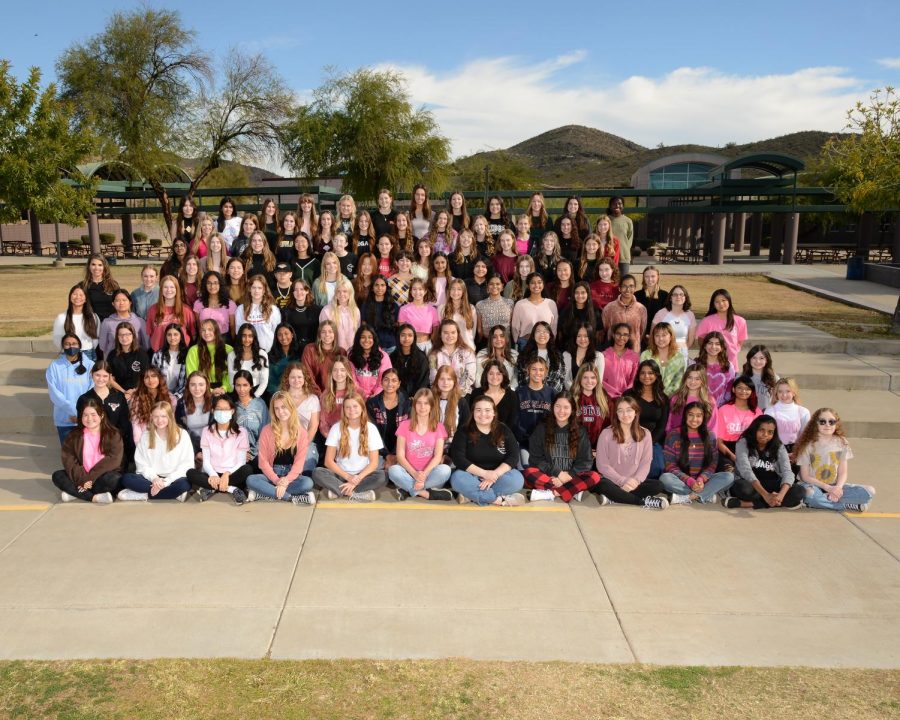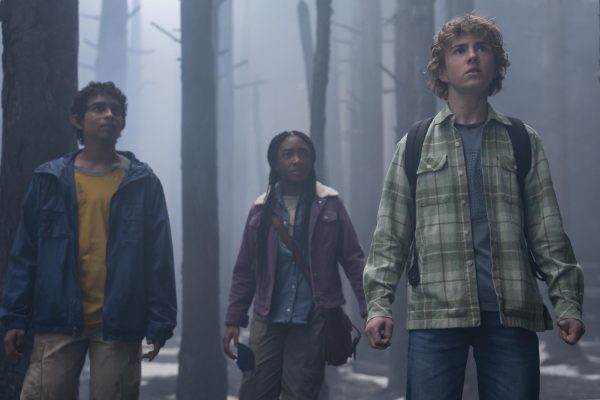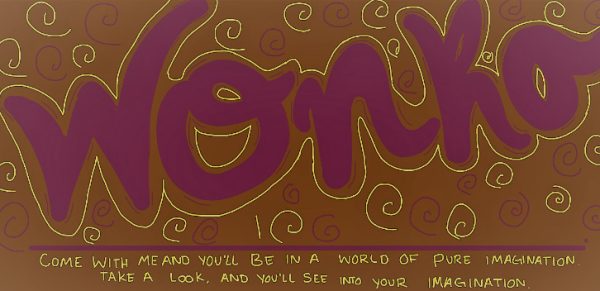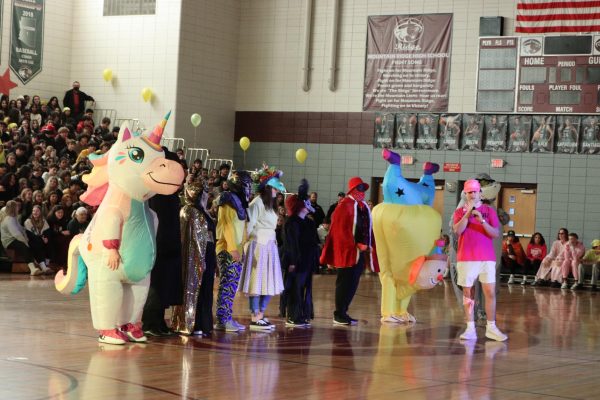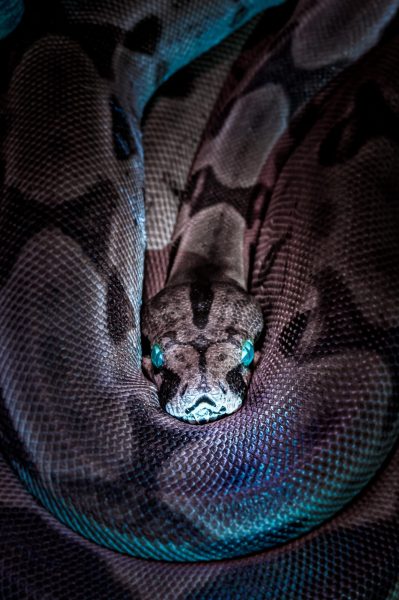Silver For Monsters
A Quick Character Analysis on The Witcher’s Geralt of Rivia
October 7, 2019
Caught amidst an eternal struggle between man and beast and divided between two evils, Andrzej Sapkowski’s iconic monster hunter, Geralt of Rivia, muddles the line between perceived goods and bads whilst partaking in exhilarating adventures throughout the world of The Witcher.
Sapkowski’s universe is fantastical, perfected by the balance of intrinsic magical qualities and dramatically grim glimpses of reality. These stories act as a commentary on contemporary political strife, cultural values, morality, and other staple themes; the work here is meticulous and prideful, and thus is deservedly respected. Out of each building block Sapkowski used in crafting these pieces, the protagonist sets himself out as a particular point of interest.
Due to what’s described as the “conjunction of the Spheres,” (meaning that multiple planes of reality were conjoined together), men and various mythical creatures live together in a state of constant turmoil; specially mutated men (Witchers) are thus employed as contractual monster hunters to protect the common folk from any potentially dangerous fiends. These men are nearly superhuman, often lacking in expressing emotion and distinguished by longevity and masterful reflexes.
Geralt is the most distinguished of these contract killers; he’s one of the oldest thanks to his commendable skill and knowledge of his profession. That with a good pinch of luck sprinkled in has allowed the monster hunter to go on many different escapades with his equally interesting and magical friends. Though the real point of concern is Geralt’s exact place in Sapkowski’s world beyond just being the protagonist.
Although Geralt was born as a human, his mutations have altered his DNA to the point in which he is neither a human, nor the magical monsters which are scattered throughout the land. This places him in a place of contempt between both parties, as he’s discriminated against by most humans, as well as (rightfully) feared by most monsters. Thus he always needs to live on the sidelines, an outlier that attempts to relate to both sides.
By taking up a stand against humans, he’s able to peel back the shrouding film of superiority and expose the truly monstrous individuals underneath; Geralt’s perception of both groups is then strained, and he’s made cynically, working only to help those who are truly good and pure. This works to build an interesting character dynamic rarely seen in video games, let alone film. Taking up this point of view allows the audience to acknowledge the work in shades of grey, as opposed to black and white understandings.
This incredibly riveting dichotomy is present throughout six books, three video games, a TV show, and an upcoming Netflix series; all of these (spare maybe the Polish television program) are by all means worth checking out, but for the average audience the Netflix series will hopefully flaunt the same love and care that has been seen in previous editions to the series. The show is set to premiere later this year, Geralt being played Henry Cavill (the current actor for Superman); it’ll be interesting to see if his character will still maintain his core values and purpose of balancing between humans and monsters.
Nonetheless, this is the absolute least I can do to describe the character, as I customarily say, go look up some info on him; Doug Cockle perfects his personality with amazing voice acting in the video game series.
“Lesser, greater, middling, it’s all the same. Proportions are negotiated, boundaries blurred. I’m not a pious hermit, I haven’t done only good in my life. But if I’m to choose between one evil and another, then I prefer not to choose at all.” Geralt of Rivia, The Witcher, Sapkowski.


